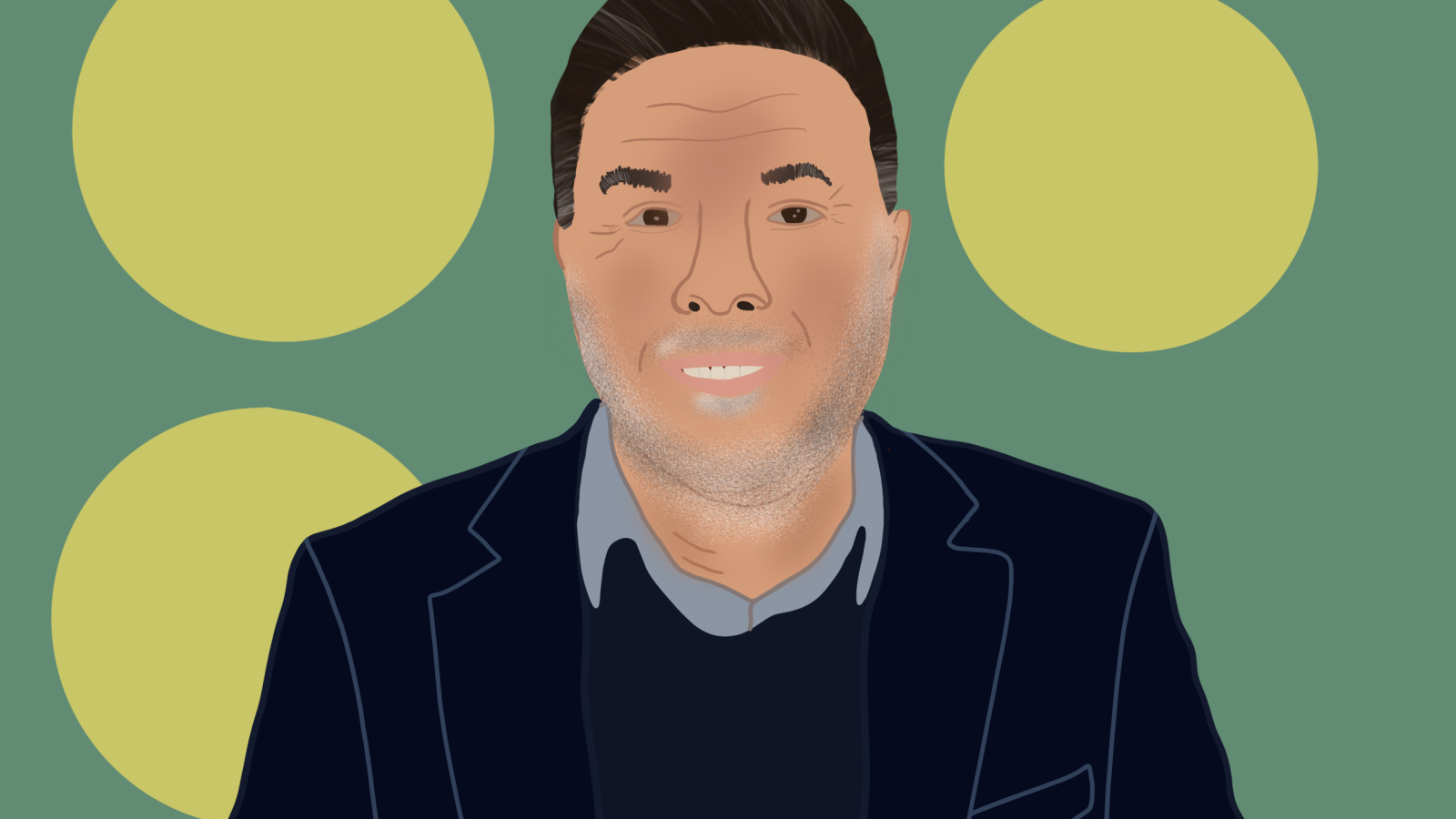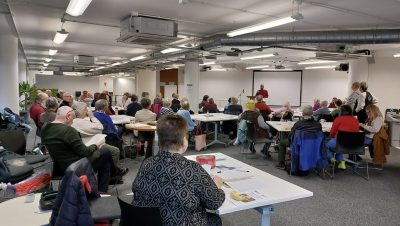Features / Breakfast with Bristol24/7
Breakfast with Bristol24/7: Simon Wales
As I stride into the Bristol Loaf on the ground floor of Bristol Beacon, I’m met with a disappointed Simon Wales. It’s not quite breakfast-serving time.
Given the delicious range of pastries and cakes, I happily opt for a raspberry and ginger cake, while Simon chooses a cheese and onion swirl. Two strong black coffees for us both.
Simon has a busy day ahead. On top of chatting with me, he has eight meetings to attend – not that you would know it from his demeanour. He seems refreshed given it is 8.30am and has a surprisingly light energy.
is needed now More than ever
We’ve met at the Loaf not only to get some clearly sought after one-on-one time but also because Simon is new to Bristol, moving here when it was announced in August last year that he would be taking over as CEO of Bristol Beacon from Lousie Mitchell who had led the venue for 12 years.
But Simon has been well-placed to take over, with the venue’s ticket sales healthy following a successful relaunch after its highly anticipated (albeit extremely costly) refurbishment.
He informs me that “now isn’t the time for a change of direction”.
He adds “I feel like that’s not helpful for anyone. I could have turned up with 15 new ideas and said let’s do all these now. It’s not the time for that.”
This era has in a word ‘blended’ with the former to become what he hopes a continuation of the work laid down before him.
He and Louise met many times before to ensure that the transition was as fluid as could be. She still comes to lots of concerts and they share updates over lunch, he tells me.
The venue’s comeback aside, Simon’s poise is drawn from another place: his rich career in the arts and culture sector alongside the well of inspiration in the shape of his father.
“I come from a musical family, my father was a musician and choir conductor,” he tells me.
His father was one of the first directors of music at the Warwick Art Centre, instilling childhood memories in Simon of “watching music and seeing students and young people performing.”
Being in those spaces he says “hardwired his brain,” adding it’s something he “felt very excited by and felt like home.”
He acknowledges that this early exposure to music meant opportunities were put in front him.
Not one to pass up a chance, he sang in choirs and played the cello from nine years old, later learning the saxophone.
Confidence is definitely not a trait that evades him, which he attributes to his dad: “When you have a father who is very inspiring, a very charismatic and energetic musician, particularly when he used to conduct choirs; he could work with people of all abilities.” Simon soaked all of that up.
With all of his immersion in classical music, it would be easy to pigeonhole him, but he tells me from an early age that “classical wasn’t going to be my lane”, and like many kids brought up in the 80s, pop music had an “explosive” impact.
With a chuckle, he says: “I can almost remember feeling slightly apologetic and saying to my parents, I’m really sorry, but I like pop music as well.”
He references artists whose influence is still felt today including Kate Bush, Orchestral Manoeuvres in the Dark and Tears for Fears. “They didn’t have decades and decades of reference,” he says.
Some of his favourite acts including Manic Street Preachers have chosen Bristol Beacon to play at. “They could fill arenas but they have chosen to come to some smaller venues too.”
But Simon adds that the Beacon “isn’t a venue where if you’re touring something and the dates are free, or you can afford the rent, your show is in. We don’t say yes to everything that we’re offered.
“We’re very careful in controlling the mix of all the different types of music and different types of performers. There are about 750 events a year across our spaces, so this is a busy building.” His music credentials check out but what about his values?
How do they align with a flagship venue like the Beacon? “I’m very open, very transparent and what you see is what you get,” Simon says. “My values are all about participation and sharing. I feel a sort of protectiveness for all the people who make this happen, but I also feel the protectiveness for music.”
As confident as he is in the current trajectory of the venue following its reopening, he isn’t complacent.
“There’s always more we can do.”
Making the venue more inclusive is one of those areas they’re aspiring to improve. He says: “Not every person in the city even comes into the city centre regularly. So, to come into this building, does it look scary? Does it feel welcoming?
“Does it feel like a place for you? It absolutely must. So, this is what I’m focused on. So, it’s for everyone.”
I ask him how he expects to do that, he tells me it comes back to personal experiences and dispelling any stereotype it may have as just a classic music hall.
Retelling a recent anecdote he says: “I watched 500 children on the stage just before Christmas doing a concert winter.
“Those 500 kids, they’ve now been into a building like this, they’ve sung on the massive stage in front of their friends and family, they’ve had that experience.”
Further to that, he adds: “I think there is a real support and also a real understanding of music education.”
Bristol Beacon offers children and young people in Bristol schools a variety of bursaries and subsidised instrumental opportunities.
A popular scheme that has many individuals on the waiting list, far more people than they have instruments. Simon has even donated his own personal cello to the scheme.
“There’s no point just mothballing it until I’m retired,” he states.
Shortage of instruments is but one of the impacts that has trickled down from years of arts and culture spending cuts from central government.
In January it was announced that Bristol City Council would be cutting its Cultural Investment Programme.
“Sadly, we’ve all experienced that now over many years, whether you’re directly working in a cultural organisation or not.
“It’s been tough, that kind of constant erosion, you get to the point where you just can’t cut anymore.
“So, there’s something very important that you’re trying to protect and you’re trying to develop. It makes it more important to ensure that we are telling most compelling story. That’s what we’re focusing on there.”
Illustration: Lucy J Turner

This article is taken from the March/April 2025 Bristol24/7 magazine
Read next:
 Our newsletters emailed directly to you
Our newsletters emailed directly to you

















